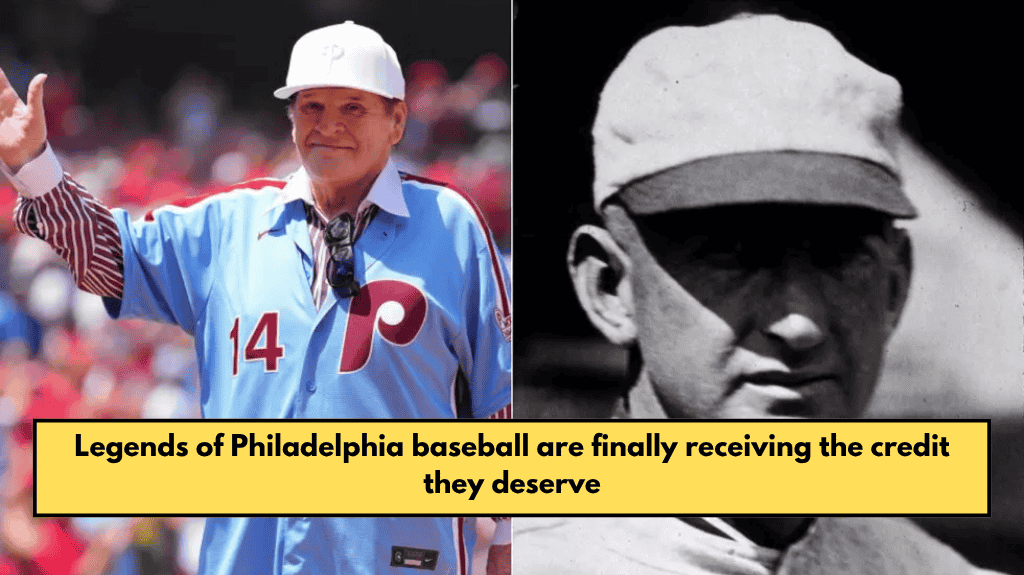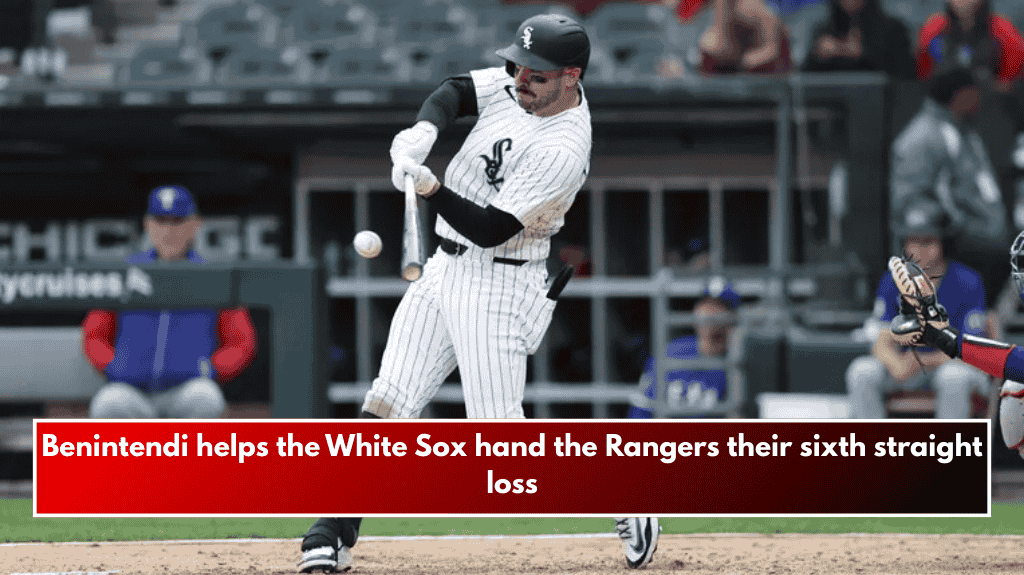Baseball, the oldest organized professional team sport in North America, has a history that combines romanticized stories with American folklore. As time passes, the game’s greatest players become legends, and their stories are woven into Americana Style Mythology.
All of this is to say that Major League Baseball Commissioner Rob Manfred’s actions on May 13th, 2025, have polarized opinion. However, emotional responses are determined by how people interpret the history of two baseball players from Philadelphia.
Major League Baseball Commissioner Rob Manfred has lifted the permanent ban on deceased individuals who violated Rule 21 of the MLB Rule Book.
What Is MLB Rule 21 and What Does It Have To Do With Former Philly Sports Athletes?
In response to the Black Sox Scandal, which involved eight Chicago White Sox players being offered bribes to lose the 1919 World Series, MLB Commissioner Kenesaw Mountain Landis barred eight of the players from ever playing professional baseball again.
Landis established Rule 21, the MLB’s official position on misconduct by players and managers.The rule is divided into seven sections and, according to MLB Commissioner’s orders, must be posted in both English and Spanish in every Baseball Clubhouse.
The most well-known section of Rule 21 outlines baseball’s prohibition on all forms of gambling. Even though history shows that the majority of White Sox players never received payment for “throwing” the World Series, bettors who placed large wagers on Cincinnati won when Chicago lost.
The most notorious member of the 1919 Chicago White Sox should have been pitcher Eddie Cicotte, the conspiracy’s ringleader. While Cicotte was paid $10,000 (more than $194,400 in today’s money) for his role in the scandal, the majority of his conspirators received no payment and stopped “trying” to lose.
But, thanks to American Mythology and Legendary Tales, the most well-known figure from the scandal was “Shoeless” Joe Jackson. After receiving little playing time during his first two seasons with the Philadelphia Athletics, Jackson went on to have a successful career as an elite hitter in Cleveland and Chicago.
While Jackson had a.375 batting average and was the best hitter in the 1919 World Series, there were suspicions that his mediocre outfield play was a precursor to his involvement in the Black Sox Scandal. Jackson reportedly refused bribes twice in 1919, and a Grand Jury acquitted the White Sox players of conspiracy charges in 1920.
Another Baseball Legend Mired In Scandal 65 Years Later
When the Philadelphia Phillies won the World Series in 1980, many people saw Pete Rose as the “missing piece” and a key contributor to the team’s success. Rose, one of baseball’s greatest hitters, was a key member of the Phillies’ 1983 World Series team.
Rose retired with the MLB records for most career hits (4,256) and games played (3562), which he still holds today. The baseball legend went on to manage his hometown baseball team, the Cincinnati Reds.
He would be the Reds’ manager for seven seasons, with a record of 412-373 and no postseason appearances. However, it was discovered during those years that Rose was gambling on baseball while still an active member of an MLB ballclub.
On August 24, 1989, Rose agreed to admit he gambled on baseball as the Cincinnati Reds manager in 1987, allowing then-Commissioner Bart Giamatti to place Baseball’s All-Time Hits Leader on the Ineligible List.
Over the last 36 years, evidence has emerged that Pete Rose was actively gambling on baseball games from at least 1985 to 1987. Interestingly, Rose only bet on his team’s success, never betting against them or their players on his hometown Cincinnati team.
Major League Baseball Commissioner Rob Manfred Changes Ineligibility Rules
Pete Rose and 16 other deceased players on the MLB’s Ineligible List have been released from their indefinite bans.
Manfred, the MLB Commissioner since 2015, issued the following statement about his decision:
“Once an individual has passed away, the purposes of Rule 21 have been served. Obviously, a person no longer with us cannot represent a threat to the integrity of the game. Moreover, it is hard to conceive of a penalty that has more deterrent effect than one that lasts a lifetime with no reprieve.”
In response to Manfred’s decision, the Philadelphia Phillies released the following statement:
The Phillies support today’s decision by Commissioner Manfred and Major League Baseball to remove Pete Rose from the permanently ineligible list.
“As one of the greatest players in the history of the game, Pete made significant on-field contributions to the Phillies over his five seasons (1979-83) with the club, highlighted by our first World Series title in 1980.”
The Baseball Hall of Fame’s board chairman, Jane Forbes Clark, has announced that Pete Rose and Joe Jackson’s cases will be reviewed by the Historical Overview Committee, which is independent of Major League Baseball. They’ll “develop the ballot of eight names for the Classic Baseball Era Committee … to vote on when it meets next in December 2027.”
While we have another two years to debate whether Rose or Jackson should be inducted into the Baseball Hall of Fame, we should remember that the building is ultimately a museum. Some of the men enshrined in that building are immoral.
-Cap Anson, baseball’s first 3,000-hitter and the sport’s first Superstar, was instrumental in segregating Major League Baseball.Anson, a Klu Klux Klan member, was accused of violent assaults against African-Americans and Jews.
-Ty Cobb is regarded as the dirtiest player in baseball history. Cobb enjoyed shooting his pistol outside his hotel to scare people and bragged for years that he “killed a man in Detroit” in addition to sharpening his spikes to hurt other players.He was known for violent confrontations with African-Americans and was involved in multiple bar brawls.
-MLB’s first commissioner, Kenesaw Mountain Landis, went to great lengths to keep baseball segregated until his death in 1944.Landis, a former Federal Judge, was a vindictive and self-righteous man who ruled Baseball with a “Iron Fist” and attempted to destroy the Negro Leagues, punishing players who publicly supported civil rights reform.
In today’s world, we know everything about a celebrity’s life, but 100 years ago, media outlets such as The Sporting News attempted to hide what baseball players did off the field.Hall of Famers Rogers Hornsby and Babe Ruth were involved in incidents that led to charges of assault, battery, and domestic violence.
But Major League Baseball spent more than a century attempting to turn “Shoeless” Joe Jackson and Pete Rose into baseball’s greatest villains?















